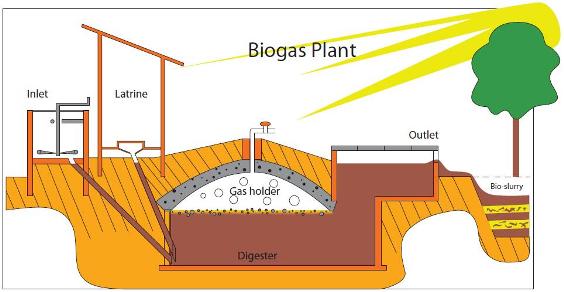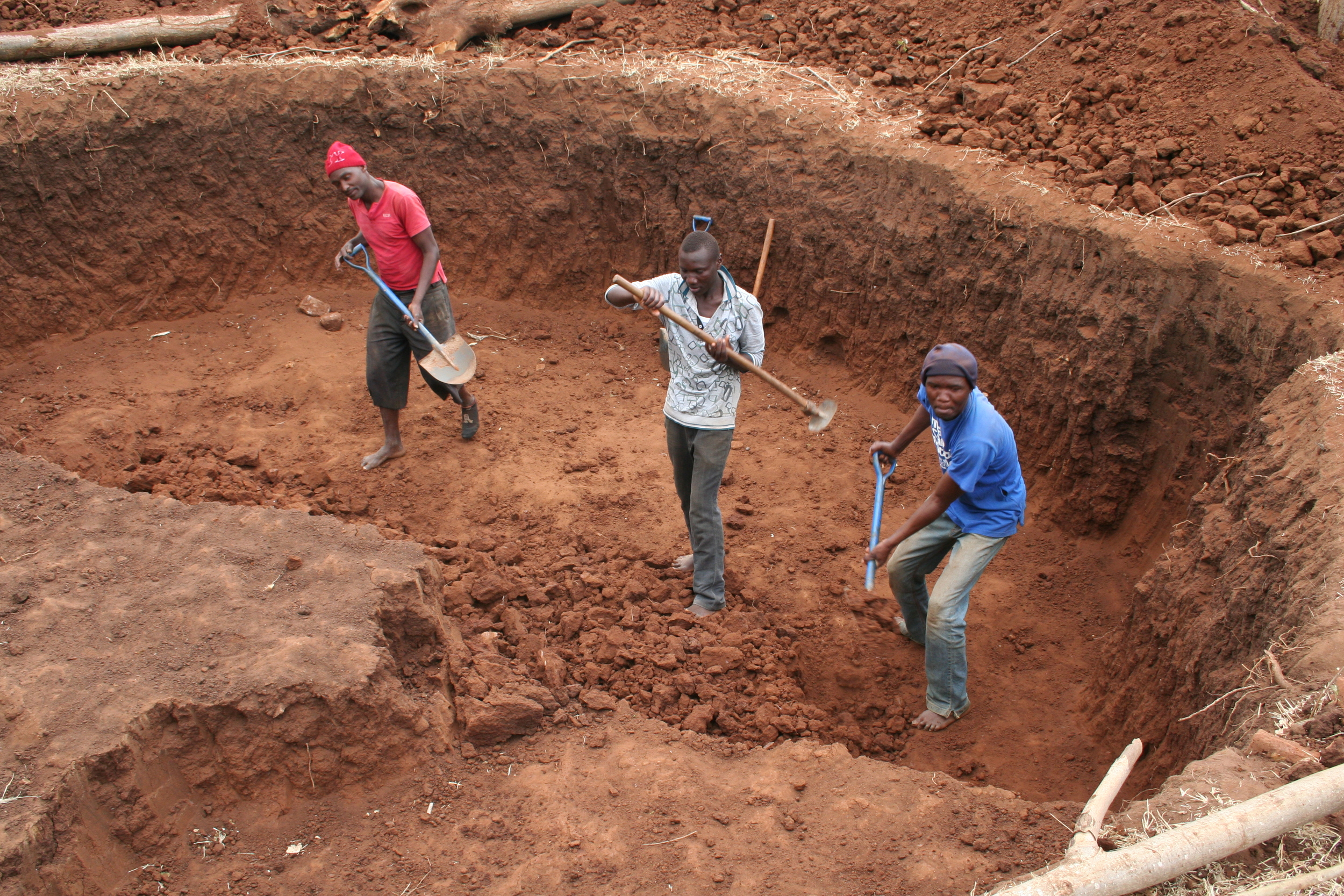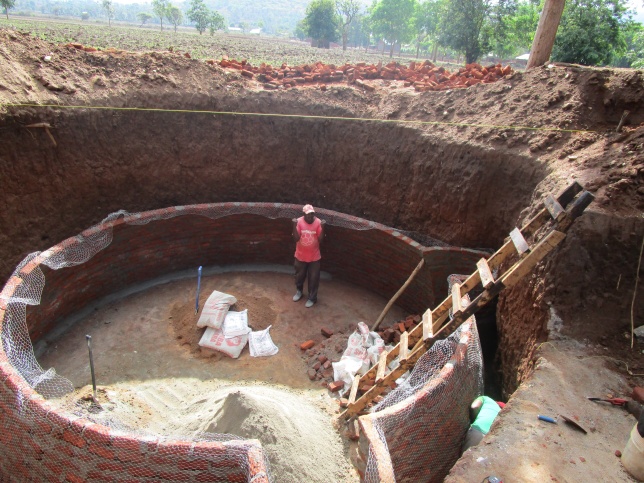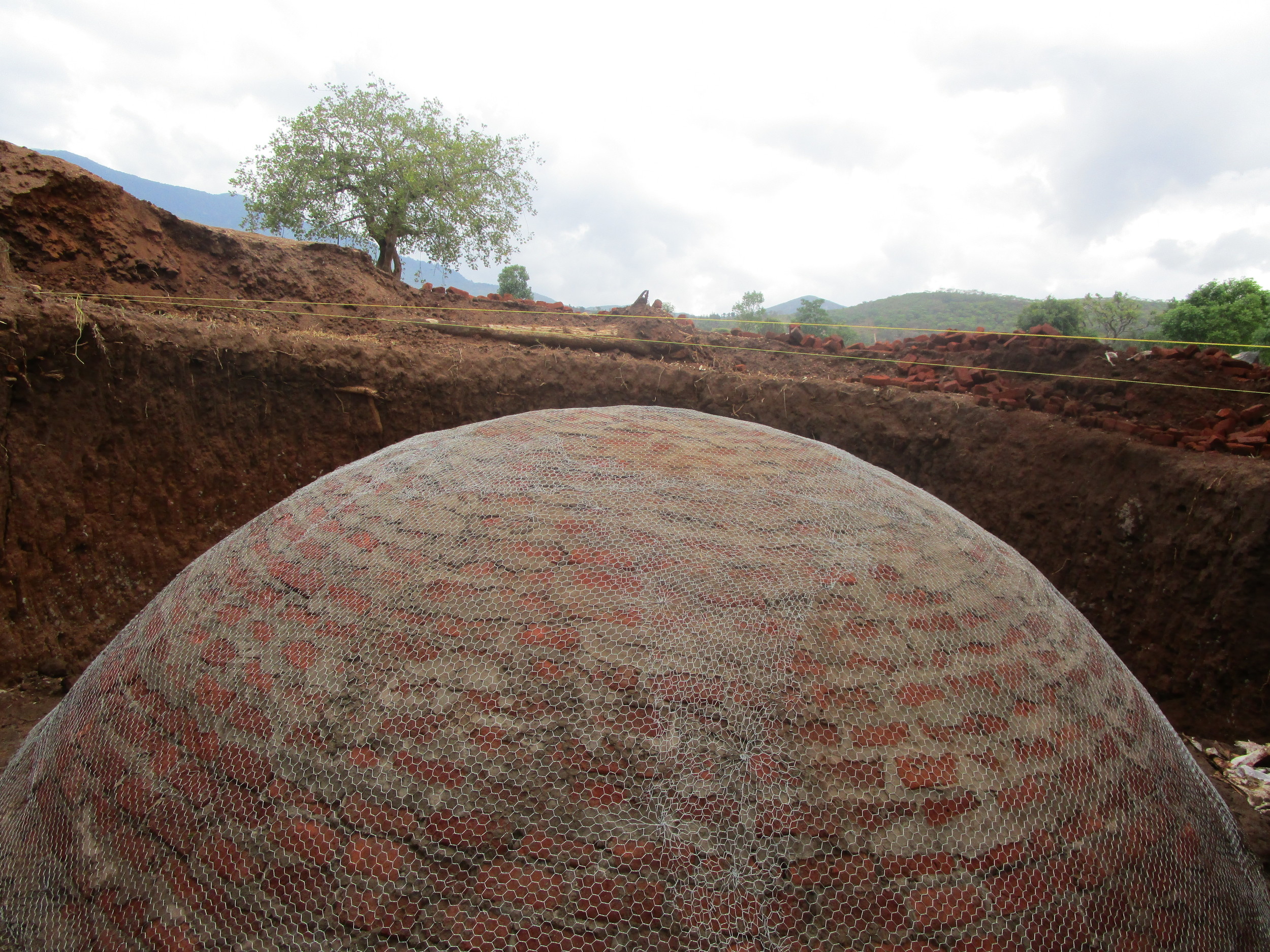Bio-gas Progress
Biogas at Managhat
99% of households and institutions in Manyara Region use firewood to cook their meals. This firewood comes from unsustainable sources and is negatively impacting on the surrounding environmental. There are alternatives....
At the Managhat Primary school, we are building a biogas plant that will reduce by 90% or even eliminate the need for firewood so that the school does not contribute to further deforestation and utilises a sustainable renewable energy source. Thus demonstrating to the local authorities that action can be taken to reduce demand for firewood. At Waangwaray and Sinai the schools are developing their tree nurseries so that they can, within 5-8 years be totally self sufficient for their firewood needs.
Phase 1 saw a huge hole being been dug to accommodate the digester. Being at the end of the dry season this was hard graft in rock solid soil. In addition construction started on a cow shed to accommodate 4 cows.
Phase 2 is near completion with the construction of the digester and its impressive dome, and the outlet chamber.
Phase 3 will see the student toilets adjusted so that the human waste is guided into the digester. We are still fundraising for the cows to put into the shed. Their waste will manually added to the digester via the Inlet. This will help speed up the process and ensure that enough gas is produced to meet the needs of the chef.
Phase 4 will see the kitchen where the school meals are made each day adjusted to install gas burners. The Cook will then receive training on how to control the flame as well as all the safety procedures.
Phase 5 will be going live when the digester has started to produce gas.
Phase 6 will see bio-slurry being produced from the Outlet. This slurry is full of nutrients and safe to use on the soil. Land near the biogas and the cow shed will be fenced off and transformed into a thriving market garden growing food for the livestock as well as for sale. The milk from the cows will also be sold. The profit from the income from the milk and vegetable sales will be used by the school to meet its own needs which will include contributions to the planned maintenance programme.
Phase 7 will see the calves from the cow shed being loaned to the community to form the basis of a cow in the community pyramid scheme. In this scheme, the selected family must care for the calf and ensure it gets pregnant. The first 2 female calves must then be donated to the next on the list, male calves can be sold. Once this is achieved the family get to keep the cow. The family keeps all the milk. This type of dairy project is a fantastic way of assisting farmers increase their income and all them to escape from poverty.




